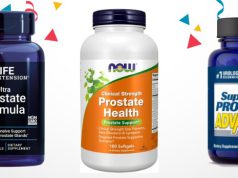
Starting your day with a healthy breakfast sets the tone for energy, focus, and overall well-being. In 2025, with growing awareness of nutrition and wellness, choosing the right breakfast foods can make a significant difference in your health journey. This comprehensive guide explores the top 3 healthiest breakfast foods, backed by science and tailored to diverse dietary needs. From boosting metabolism to supporting heart health, these nutrient-packed options are must-haves for anyone looking to optimize their mornings.
In this detailed article, we’ll dive into the benefits, preparation tips, and nutritional profiles of each food, ensuring you have all the information to make informed choices. Whether you’re a busy professional, a fitness enthusiast, or a parent seeking balanced meals for your family, these breakfast foods offer versatility and value. Let’s uncover the healthiest breakfast options for 2025!
Why Breakfast Matters for Your Health
Breakfast is often called the most important meal of the day, and for good reason. A nutritious morning meal kickstarts your metabolism, stabilizes blood sugar levels, and provides essential nutrients to fuel your body and brain. Here’s why prioritizing a healthy breakfast is crucial:
- Boosts Energy: Provides carbohydrates and proteins to power your day.
- Improves Focus: Enhances cognitive function and concentration, especially for students and professionals.
- Supports Weight Management: Helps regulate appetite, reducing the likelihood of overeating later.
- Promotes Heart Health: Nutrient-rich foods can lower cholesterol and improve cardiovascular function.
- Enhances Mood: Balanced breakfasts with vitamins and minerals support mental well-being.
With these benefits in mind, let’s explore the top 3 healthiest breakfast foods that can transform your mornings.
1. Oats: The Ultimate Heart-Healthy Grain
Oats are a nutritional powerhouse, widely regarded as one of the healthiest breakfast foods due to their rich fiber content and versatility. Whether served as oatmeal, overnight oats, or baked into muffins, oats offer a delicious way to start your day.
Nutritional Profile
- Fiber: 4 grams per ½ cup serving, including beta-glucan, which lowers cholesterol.
- Protein: 5 grams per ½ cup, aiding muscle repair and satiety.
- Vitamins and Minerals: Rich in iron, magnesium, zinc, and B vitamins.
- Calories: Approximately 150 calories per ½ cup (dry), depending on preparation.
Health Benefits
- Heart Health: Beta-glucan fiber reduces LDL (“bad”) cholesterol levels, supporting cardiovascular health.
- Blood Sugar Control: Slow-digesting carbs help maintain stable glucose levels, benefiting those with diabetes or insulin resistance.
- Weight Management: High fiber promotes fullness, reducing overall calorie intake.
- Gut Health: Acts as a prebiotic, feeding beneficial gut bacteria.
Preparation Tips
- Classic Oatmeal: Cook ½ cup rolled oats with 1 cup water or milk, adding toppings like berries, nuts, or a drizzle of honey.
- Overnight Oats: Mix ½ cup oats with ½ cup yogurt and ½ cup milk in a jar, refrigerate overnight, and top with fruits in the morning.
- Baked Goods: Incorporate oats into muffins or granola bars for a portable breakfast option.
Why It’s Great
Oats are affordable, widely available, and adaptable to various diets, including gluten-free (if certified). Their ability to lower cholesterol and support digestion makes them a top choice for health-conscious individuals. Studies, such as those published in the American Journal of Clinical Nutrition, highlight oats’ role in reducing heart disease risk by up to 20% with regular consumption.
Who It’s For
- Heart Health Advocates: Ideal for those looking to improve cholesterol levels.
- Busy Individuals: Quick to prepare or make ahead for convenience.
- Vegetarians/Vegans: Easily paired with plant-based milk and toppings.
Drawbacks
- May cause bloating if introduced suddenly; start with small portions.
- Requires cooking or soaking time, though overnight oats mitigate this.
Bottom Line
Oats are a versatile, nutrient-dense breakfast food that supports heart health, stabilizes blood sugar, and keeps you full. Incorporate them into your routine for a wholesome start to your day.
2. Greek Yogurt: The Protein-Packed Probiotic
Greek yogurt stands out as one of the healthiest breakfast foods thanks to its high protein content, probiotics, and creamy texture. Available in plain and flavored varieties, it’s a staple for those seeking a balanced and gut-friendly meal.
Nutritional Profile
- Protein: 15–20 grams per ¾ cup serving (plain, nonfat), supporting muscle maintenance.
- Probiotics: Live cultures improve gut flora and digestion.
- Calcium: 20% of the daily value per serving, promoting bone health.
- Calories: 100–150 calories per ¾ cup, depending on fat content.
Health Benefits
- Muscle Recovery: High protein aids post-workout recovery and satiety.
- Gut Health: Probiotics enhance digestion and boost immunity.
- Bone Strength: Calcium and vitamin D (in fortified versions) support skeletal health.
- Weight Loss: Protein-rich foods increase metabolism and reduce cravings.
Preparation Tips
- Plain with Toppings: Add fresh fruits (e.g., berries, bananas), a sprinkle of nuts, and a teaspoon of chia seeds.
- Smoothie Base: Blend with spinach, frozen fruit, and almond milk for a nutrient-packed drink.
- Parfait: Layer with granola and honey for a visually appealing, portable option.
Why It’s Great
Greek yogurt’s thick consistency and tangy flavor make it a satisfying base for countless recipes. Its probiotic content, supported by research in the Journal of Nutrition, can reduce inflammation and improve gut microbiome diversity. Opt for plain, unsweetened varieties to avoid added sugars.
Who It’s For
- Fitness Enthusiasts: Perfect for a post-workout protein boost.
- Gut Health Seekers: Ideal for those addressing digestive issues.
- Quick Breakfast Lovers: Requires minimal preparation.
Drawbacks
- High-sodium versions may affect those with hypertension.
- Some brands contain added sugars; check labels carefully.
Bottom Line
Greek yogurt is a protein-rich, probiotic-packed breakfast food that supports muscle health, digestion, and weight management. It’s a versatile choice for a quick, nutritious meal.
3. Berries: The Antioxidant-Rich Superfood
Berries—such as blueberries, strawberries, and raspberries—are among the healthiest breakfast foods due to their vibrant colors and potent antioxidants. These small fruits pack a big nutritional punch, making them a perfect addition to any morning meal.
Nutritional Profile
- Antioxidants: High in anthocyanins and vitamin C, combating oxidative stress.
- Fiber: 3–8 grams per cup, depending on the type, aiding digestion.
- Vitamins and Minerals: Rich in vitamin K, manganese, and folate.
- Calories: 50–85 calories per cup, making them a low-calorie option.
Health Benefits
- Anti-Inflammatory: Antioxidants reduce inflammation, lowering chronic disease risk.
- Brain Health: Improves memory and cognitive function, as noted in studies like those in Annals of Neurology.
- Heart Protection: Flavonoids support blood vessel health and reduce blood pressure.
- Weight Control: Low in calories and high in fiber, promoting satiety.
Preparation Tips
- With Oatmeal: Sprinkle a handful of mixed berries over your morning oats.
- In Yogurt: Mix into Greek yogurt for a colorful, nutrient-dense parfait.
- Smoothie Boost: Add frozen berries to a blender with spinach and protein powder.
- Raw Snack: Enjoy a bowl of fresh berries as a light breakfast or side.
Why It’s Great
Berries are easy to incorporate into any breakfast and offer a sweet taste without refined sugars. Their antioxidant properties, particularly from blueberries, have been linked to a 15% reduction in heart disease risk, according to the American Heart Association. Seasonal or frozen options ensure year-round availability.
Who It’s For
- Health Enthusiasts: Perfect for those prioritizing antioxidants and vitamins.
- Kids and Families: Naturally sweet and appealing to all ages.
- Dieters: Low-calorie and filling, ideal for weight management.
Drawbacks
- Expensive during off-seasons; opt for frozen berries as a cost-effective alternative.
- May cause mild allergic reactions in rare cases.
Bottom Line
Berries are a delicious, antioxidant-rich breakfast food that supports heart and brain health while aiding weight control. Add them to your meals for a burst of flavor and nutrition.
How to Choose the Healthiest Breakfast Foods for You
Selecting the best breakfast foods depends on your dietary preferences, health goals, and lifestyle. Consider these factors:
Dietary Needs:
- Gluten-free? Choose certified oats or focus on berries and yogurt.
- Vegan? Use plant-based yogurt and oat milk.
Health Goals:
- Heart health? Prioritize oats and berries.
- Muscle building? Emphasize Greek yogurt and pair with nuts.
Time Constraints:
- Quick options? Try overnight oats or pre-portioned yogurt with berries.
- More time? Cook oatmeal or create a custom smoothie.
Taste Preferences:
- Sweet lovers? Add honey or fruit to oats or yogurt.
- Savory fans? Mix yogurt with herbs and veggies.
Budget:
Affordable staples like oats and frozen berries offer great value.
Tips for Maximizing Breakfast Nutrition
- Balance Macronutrients: Combine carbs (oats), protein (yogurt), and fats (nuts) for sustained energy.
- Stay Hydrated: Pair your meal with water or herbal tea to aid digestion.
- Avoid Processed Sugars: Opt for natural sweeteners like fruit or a touch of honey.
- Prep Ahead: Make overnight oats or pre-portion berries and yogurt for busy mornings.
- Variety is Key: Rotate these foods to ensure a broad nutrient intake.
Frequently Asked Questions (FAQs)
1. What makes a breakfast healthy?
A healthy breakfast includes a balance of fiber, protein, healthy fats, and micronutrients, like those found in oats, Greek yogurt, and berries.
2. Can I eat these foods every day?
Yes, these foods are nutrient-dense and safe for daily consumption when prepared healthily. Variety prevents nutrient deficiencies.
3. Are frozen berries as healthy as fresh?
Yes, frozen berries retain most nutrients and antioxidants, making them a convenient, year-round option.
4. How much protein do I need at breakfast?
Aim for 15–25 grams, easily achieved with ¾ cup Greek yogurt or a combination with oats and nuts.
5. What if I’m short on time?
Overnight oats or a pre-made yogurt-berry parfait are quick, healthy solutions.
Conclusion
The oats, Greek yogurt, and berries are the top 3 healthiest breakfast foods for 2025, offering a blend of heart health, muscle support, and antioxidant benefits. Whether you’re fueling a busy day or nurturing your well-being, these foods deliver versatility and nutrition.
- Oats provide fiber and heart protection with endless preparation options.
- Greek Yogurt offers protein and probiotics for gut and muscle health.
- Berries bring antioxidants and flavor to enhance any meal.
Incorporate these into your breakfast routine to start your day with vitality and balance. Explore recipes and enjoy the journey to better health today!
Note: Nutritional values may vary by brand and preparation. Consult a healthcare provider for personalized dietary advice.












